
-
 Japanese, Koreans bottom of global love life survey
Japanese, Koreans bottom of global love life survey
-
Japan ramps up tech ambitions with $65 bn for AI, chips

-
 Taliban govt clearing 'un-Islamic' books from Afghanistan shelves
Taliban govt clearing 'un-Islamic' books from Afghanistan shelves
-
Asian markets struggle as traders weigh geopolitical tensions

-
 Iraq holds its first census in nearly 40 years
Iraq holds its first census in nearly 40 years
-
SpaceX fails to repeat Starship booster catch, as Trump watches on
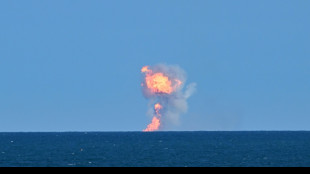
-
 European powers, US seek to censure Iran at UN nuclear watchdog board
European powers, US seek to censure Iran at UN nuclear watchdog board
-
SpaceX fails to repeat Starship booster catch, as Trump looks on

-
 European stocks fall on Ukraine-Russia fears, US focused on earnings
European stocks fall on Ukraine-Russia fears, US focused on earnings
-
Trump names China hawk Howard Lutnick commerce secretary

-
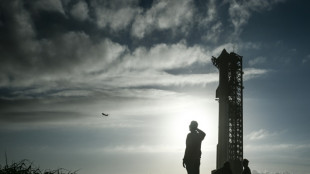 SpaceX set for Starship's next flight -- with Trump watching
SpaceX set for Starship's next flight -- with Trump watching
-
Top-selling daily French daily Ouest-France stops posting on X

-
 Russian invasion toll on environment $71 billion, Ukraine says
Russian invasion toll on environment $71 billion, Ukraine says
-
New Botswana leader eyes cannabis, sunshine to lift economy

-
 China's Xi urges 'strategic' ties in talks with Germany's Scholz
China's Xi urges 'strategic' ties in talks with Germany's Scholz
-
COP29 negotiators strive for deal after G20 'marching orders'

-
 Walmart lifts full-year forecast after strong Q3
Walmart lifts full-year forecast after strong Q3
-
Son of Norwegian princess arrested on suspicion of rape
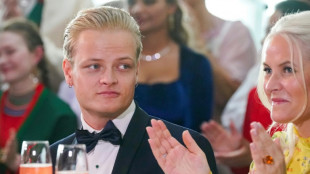
-
 US lawmaker accuses Azerbaijan in near 'assault' at COP29
US lawmaker accuses Azerbaijan in near 'assault' at COP29
-
Spain royals to visit flood epicentre after chaotic trip: media
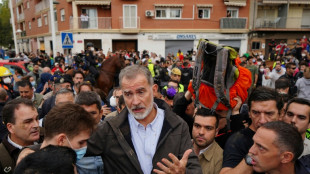
-
 French farmers step up protests against EU-Mercosur deal
French farmers step up protests against EU-Mercosur deal
-
Burst dike leaves Filipino farmers under water

-
 Markets rally after US bounce as Nvidia comes into focus
Markets rally after US bounce as Nvidia comes into focus
-
Crisis-hit Thyssenkrupp books another hefty annual loss

-
 Farmers descend on London to overturn inheritance tax change
Farmers descend on London to overturn inheritance tax change
-
Floods strike thousands of houses in northern Philippines

-
 SpaceX set for Starship's next flight, Trump expected to attend
SpaceX set for Starship's next flight, Trump expected to attend
-
Several children injured in car crash at central China school

-
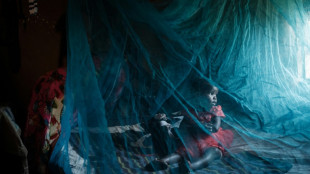 Urban mosquito sparks malaria surge in East Africa
Urban mosquito sparks malaria surge in East Africa
-
Many children injured after car crashes at central China school: state media

-
 Asian markets rally after US bounce as Nvidia comes into focus
Asian markets rally after US bounce as Nvidia comes into focus
-
Tens of thousands march in New Zealand Maori rights protest

-
 Five takeaways from the G20 summit in Rio
Five takeaways from the G20 summit in Rio
-
Parts of Great Barrier Reef suffer highest coral mortality on record

-
 Defiant Lebanese harvest olives in the shadow of war
Defiant Lebanese harvest olives in the shadow of war
-
Divided G20 fails to agree on climate, Ukraine

-
 Can the Trump-Musk 'bromance' last?
Can the Trump-Musk 'bromance' last?
-
US to call for Google to sell Chrome browser: report

-
 Trump expected to attend next Starship rocket launch: reports
Trump expected to attend next Starship rocket launch: reports
-
Stocks, dollar hesitant as traders brace for Nvidia earnings

-
 Biden in 'historic' pledge for poor nations ahead of Trump return
Biden in 'historic' pledge for poor nations ahead of Trump return
-
Tropical storm Sara kills four in Honduras and Nicaragua

-
 Spanish resort to ban new holiday flats in 43 neighbourhoods
Spanish resort to ban new holiday flats in 43 neighbourhoods
-
Phone documentary details Afghan women's struggle under Taliban govt

-
 G20 wrestles with wars, 'turbulence' in run-up to Trump
G20 wrestles with wars, 'turbulence' in run-up to Trump
-
Stocks, dollar hesitant as traders eye US rate outlook, Nvidia

-
 G20 wrestles with wars, climate in run-up to Trump
G20 wrestles with wars, climate in run-up to Trump
-
G20 host Brazil launches alliance to end 'scourge' of hunger

-
 Stocks, dollar hesitant as traders scale back US rate cut bets
Stocks, dollar hesitant as traders scale back US rate cut bets
-
Trump confirms plan to use military for mass deportation


Burned TV station showcases anger at Bangladesh PM
Torn portraits of Bangladesh's independence hero litter a ransacked state television station -- a pointed expression of public fury against his daughter, who just witnessed the worst unrest of her premiership.
Prime Minister Sheikh Hasina addressed the nation on Bangladesh Television (BTV) last week to appeal for calm, just as a police crackdown on student protests was poised to tip into violent disorder.
The next day a mob of hundreds stormed the state broadcaster and set fire to an office building, along with dozens of other government and police posts around the capital Dhaka.
They also attacked a gallery hosting around 150 portraits of the premier's father Sheikh Mujibur Rahman, who led the country after its devastating 1971 liberation war with Pakistan until his assassination four years later.
"This is a war zone," Bangladeshi information minister Mohammad Ali Arafat told reporters invited by the government and BTV to survey the destruction on Wednesday.
He gestured to oil paintings of Rahman strewn on the ground, disfigured by knives used to stab through the leader's face.
"Does this look like a peaceful protest to you?"
Mujib's nationbuilding role has been both lauded and dismissed by successive Bangladesh governments, with memories of the war and famine that birthed the country still polarising its people more than half a century since independence.
But Hasina has foregrounded her father's legacy to such an extent that critics accuse her of establishing a personality cult designed to entrench her rule.
Since she took office a second time in 2009, Mujib's image has appeared on every banknote and in hundreds of public murals across the South Asian nation of 170 million people.
Portraits like those in BTV's Dhaka headquarters are not only commonplace, but a legal requirement: Hasina's government changed the constitution to require that they be hung in every school, government office and diplomatic mission.
During Hasina's speech on BTV last week, given in a failed effort to quell the rising tensions soon to unleash mayhem across Bangladesh, several portraits of her father hung around her office appeared on the broadcast.
- 'Secular blasphemy law' -
The unrest began last week when the youth wing of Hasina's ruling Awami League and police officers attempted to suppress running student demonstrations against job quotas for civil servant hires.
The scheme was introduced by Hasina's father in 1972 and until Sunday reserved nearly a third of all government jobs for the families of veterans from the independence war with Pakistan.
Hasina, 76, inflamed by likening protesters to the Bangladeshis who had collaborated with Pakistan during that conflict.
The premier won her fourth consecutive election in January after a vote without genuine opposition.
Her government is accused by rights groups of misusing state institutions to entrench its hold on power and stamp out dissent, including by the extrajudicial killing of opposition activists.
Hasina's father casts a long shadow over her own leadership: she refers to his assassination in a 1975 coup in almost every speech she gives, her voice often choking with emotion.
The military regime that followed did its best to sideline Mujib's contribution to the country entirely, but even considered at a remove from Bangladesh's deeply polarised politics, his legacy remains complex.
Towards the end of his life, Mujib abolished multi-party democracy and imposed media restrictions that shuttered all but four state-controlled newspapers.
Hasina's critics often evoke autocratic parallels between Mujib and his daughter.
One senior human rights activist in Bangladesh said, on condition of anonymity for fear of retribution, that the now-ubiquitous presence of Mujib's portrait in public spaces made the country resemble "one-party states".
"She has basically introduced a secular blasphemy law in the country for her father," the activist told AFP in January.
O.Hansen--CPN
